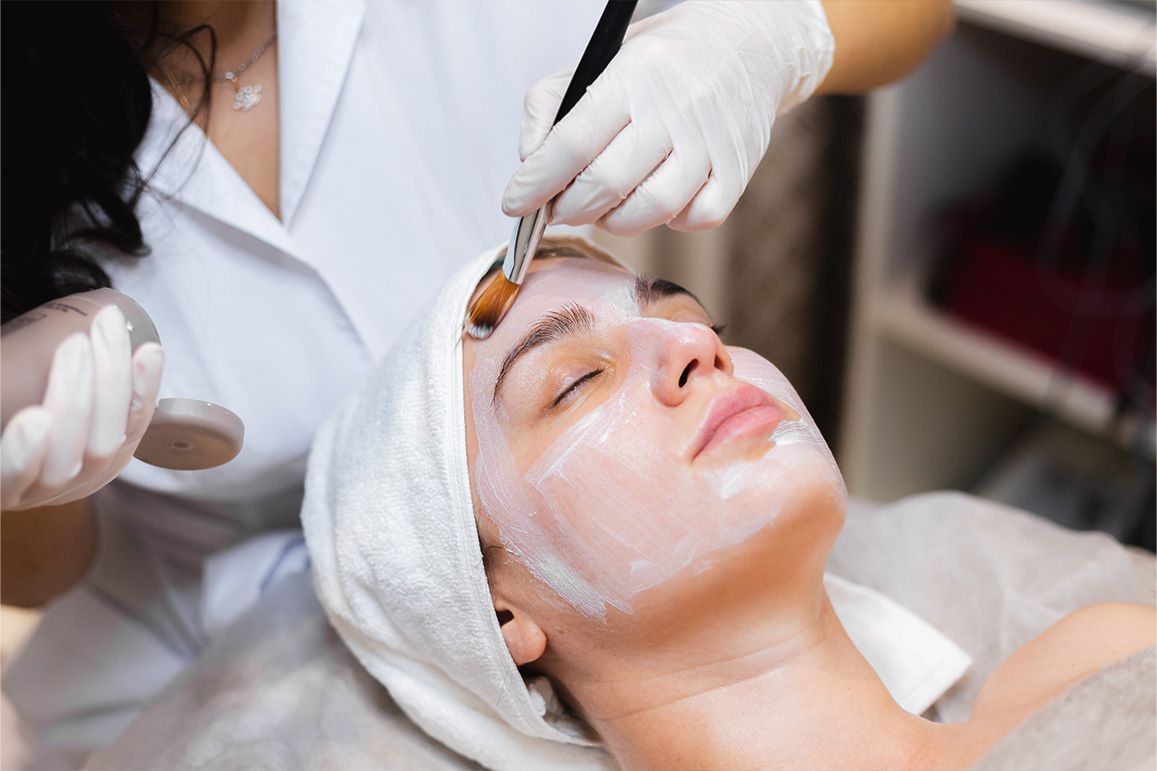A Complete Guide to Chemical Peels: Rejuvenate Your Skin Safely
Chemical peels are one of the most sought-after treatments in body plastic surgery, offering an effective way to improve complexion, reduce acne scars, and minimize signs of aging. This procedure uses a specialized chemical solution to exfoliate the outer layer of the skin, promoting the growth of fresh, healthy skin underneath.
Before deciding on a chemical peel, it’s essential to understand how it works, its benefits, potential risks, and proper aftercare.

Chemical peels are one of the most sought-after treatments in body plastic surgery, offering an effective way to improve complexion, reduce acne scars, and minimize signs of aging. This procedure uses a specialized chemical solution to exfoliate the outer layer of the skin, promoting the growth of fresh, healthy skin underneath.
Before deciding on a chemical peel, it’s essential to understand how it works, its benefits, potential risks, and proper aftercare.
What Are Chemical Peels?
A chemical peel is a cosmetic procedure designed to remove damaged or dead skin cells using a controlled chemical solution. By shedding the topmost layer of skin, it exposes new, smoother, and more vibrant skin.
Common reasons people opt for chemical peels include:
● Reducing fine lines and wrinkles
● Fading acne scars and blemishes
● Minimizing sun damage or pigmentation
● Improving overall skin texture and tone
Chemical peels support the skin’s natural regenerative processes while enhancing its appearance and health, making them a popular choice among patients seeking non-invasive body plastic surgery treatments.
How Chemical Peels Work
Though they may sound intimidating, chemical peels are simple, quick, and minimally invasive. The solution works by encouraging the skin to shed old cells and regenerate new ones. Over time, this leads to improved texture, reduced imperfections, and a rejuvenated complexion.
Typical Steps of a Chemical Peel:
1. The skin is thoroughly cleansed to remove dirt, oil, and makeup.
2. A protective cream may be applied to prevent irritation.
3. The peeling solution is gently applied to the skin.
4. A soothing or hydrating mask is used to calm and nourish the treated area.
The process is fast, requires minimal downtime, and provides noticeable improvements without surgery.
What to Expect After the Treatment
Following a chemical peel, the skin usually peels over 3–5 days. Proper care is essential:
● Avoid direct sunlight and apply sunscreen regularly
● Use gentle, non-irritating moisturizers
● Avoid harsh skincare products during healing
Following these steps ensures smooth recovery and long-lasting results.
Benefits of Chemical Peels
● Reduces Acne and Scarring: Deeply cleanses pores and diminishes scars that topical creams may not fully treat.
● Evens Skin Tone: Gradually fades hyperpigmentation, dark spots, and uneven skin tones.
● Smooths Fine Lines and Wrinkles: Improves skin elasticity and reduces age-related wrinkles.
● Non-Surgical Approach: Chemical peels offer a safer alternative to invasive procedures.
● Boosts Confidence: Improves appearance, enhancing self-esteem and satisfaction.
Potential Side Effects
Chemical peels are generally safe, but some individuals may experience:
● Redness or mild irritation
● Tingling or stinging sensations
● Peeling or flaking of skin
● Temporary changes in skin color or texture
Consulting with experienced plastic surgeons can minimize risks and ensure suitability for your skin type.
Who Can Benefit from Chemical Peels?
Ideal candidates include those with:
● Uneven skin tone or pigmentation
● Acne scars or blemishes
● Premature aging or fine lines
● Sun-damaged skin
● Rough texture or enlarged pores
A professional in body plastic surgery can recommend the right type of peel based on individual skin concerns and sensitivity.
Cost of Chemical Peels
The price varies depending on depth and intensity:
● Light Peels: Mild exfoliation for minor concerns; generally affordable.
● Medium Peels: Target deeper pigmentation, acne scars, or fine lines; moderately priced.
● Deep Peels: Address severe damage or aging signs; higher cost due to professional supervision required.
Essential Aftercare Tips
Do’s:
● Apply sunscreen consistently
● Use gentle, non-soap cleansers
● Wash with lukewarm or cool water
● Keep skin moisturized with mild products
Don’ts:
● Avoid intense workouts or saunas
● Do not exfoliate during peeling
● Avoid strong products like retinol immediately after treatment
● Allow time for full healing before the next intensive procedure
Adhering to these tips maximizes results and prevents complications.
Final Thoughts
Chemical peels are a versatile, non-surgical solution for enhancing skin tone, texture, and overall appearance. When performed by certified plastic surgeons, they offer safe, long-lasting results.
Before undergoing a chemical peel, consult an experienced body plastic surgery professional to choose the right type and intensity for your skin. With proper care, chemical peels can leave your skin rejuvenated, radiant, and healthier than ever.











